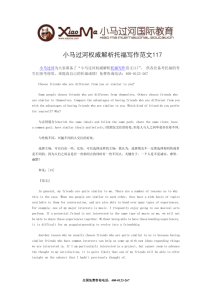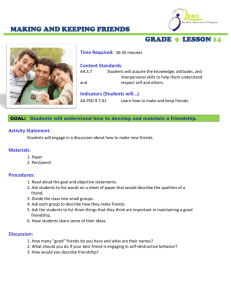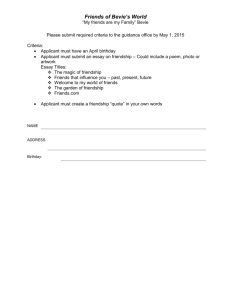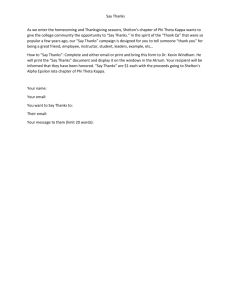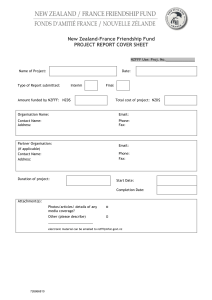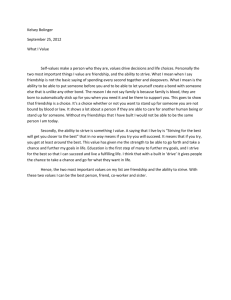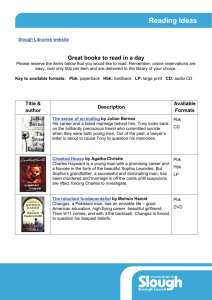As represented by the three stars on the Phi Beta Kappa key, which
advertisement
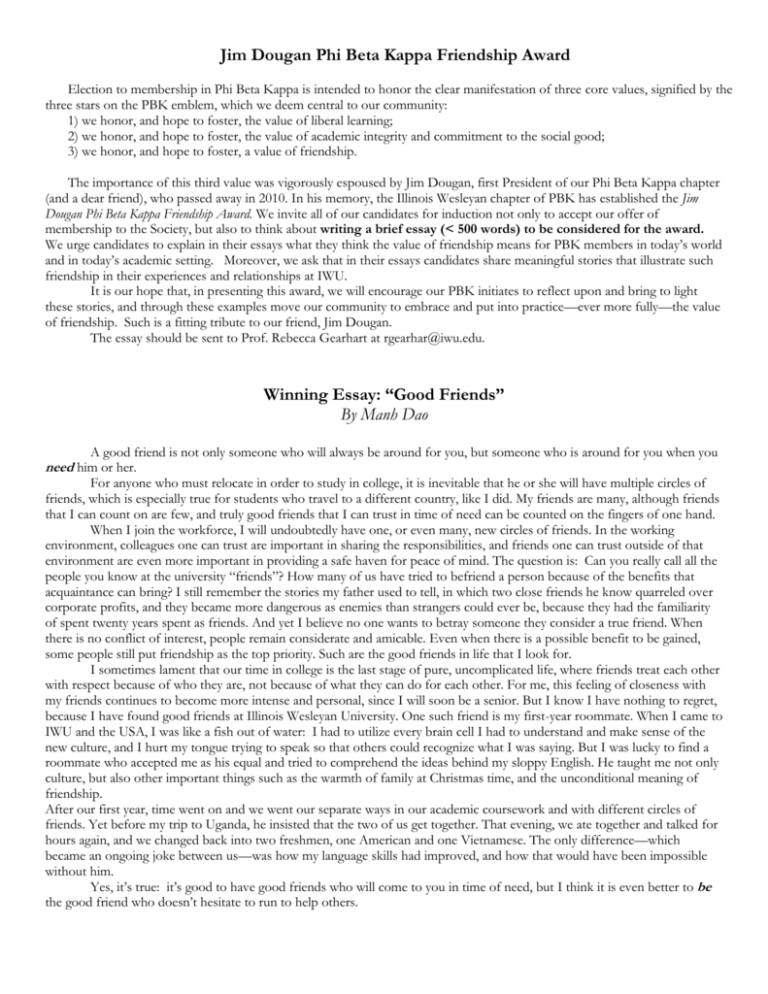
Jim Dougan Phi Beta Kappa Friendship Award Election to membership in Phi Beta Kappa is intended to honor the clear manifestation of three core values, signified by the three stars on the PBK emblem, which we deem central to our community: 1) we honor, and hope to foster, the value of liberal learning; 2) we honor, and hope to foster, the value of academic integrity and commitment to the social good; 3) we honor, and hope to foster, a value of friendship. The importance of this third value was vigorously espoused by Jim Dougan, first President of our Phi Beta Kappa chapter (and a dear friend), who passed away in 2010. In his memory, the Illinois Wesleyan chapter of PBK has established the Jim Dougan Phi Beta Kappa Friendship Award. We invite all of our candidates for induction not only to accept our offer of membership to the Society, but also to think about writing a brief essay (< 500 words) to be considered for the award. We urge candidates to explain in their essays what they think the value of friendship means for PBK members in today’s world and in today’s academic setting. Moreover, we ask that in their essays candidates share meaningful stories that illustrate such friendship in their experiences and relationships at IWU. It is our hope that, in presenting this award, we will encourage our PBK initiates to reflect upon and bring to light these stories, and through these examples move our community to embrace and put into practice—ever more fully—the value of friendship. Such is a fitting tribute to our friend, Jim Dougan. The essay should be sent to Prof. Rebecca Gearhart at rgearhar@iwu.edu. Winning Essay: “Good Friends” By Manh Dao A good friend is not only someone who will always be around for you, but someone who is around for you when you need him or her. For anyone who must relocate in order to study in college, it is inevitable that he or she will have multiple circles of friends, which is especially true for students who travel to a different country, like I did. My friends are many, although friends that I can count on are few, and truly good friends that I can trust in time of need can be counted on the fingers of one hand. When I join the workforce, I will undoubtedly have one, or even many, new circles of friends. In the working environment, colleagues one can trust are important in sharing the responsibilities, and friends one can trust outside of that environment are even more important in providing a safe haven for peace of mind. The question is: Can you really call all the people you know at the university “friends”? How many of us have tried to befriend a person because of the benefits that acquaintance can bring? I still remember the stories my father used to tell, in which two close friends he know quarreled over corporate profits, and they became more dangerous as enemies than strangers could ever be, because they had the familiarity of spent twenty years spent as friends. And yet I believe no one wants to betray someone they consider a true friend. When there is no conflict of interest, people remain considerate and amicable. Even when there is a possible benefit to be gained, some people still put friendship as the top priority. Such are the good friends in life that I look for. I sometimes lament that our time in college is the last stage of pure, uncomplicated life, where friends treat each other with respect because of who they are, not because of what they can do for each other. For me, this feeling of closeness with my friends continues to become more intense and personal, since I will soon be a senior. But I know I have nothing to regret, because I have found good friends at Illinois Wesleyan University. One such friend is my first-year roommate. When I came to IWU and the USA, I was like a fish out of water: I had to utilize every brain cell I had to understand and make sense of the new culture, and I hurt my tongue trying to speak so that others could recognize what I was saying. But I was lucky to find a roommate who accepted me as his equal and tried to comprehend the ideas behind my sloppy English. He taught me not only culture, but also other important things such as the warmth of family at Christmas time, and the unconditional meaning of friendship. After our first year, time went on and we went our separate ways in our academic coursework and with different circles of friends. Yet before my trip to Uganda, he insisted that the two of us get together. That evening, we ate together and talked for hours again, and we changed back into two freshmen, one American and one Vietnamese. The only difference—which became an ongoing joke between us—was how my language skills had improved, and how that would have been impossible without him. Yes, it’s true: it’s good to have good friends who will come to you in time of need, but I think it is even better to be the good friend who doesn’t hesitate to run to help others.
